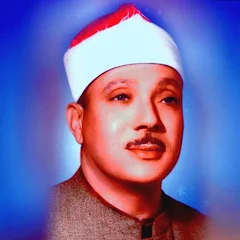Qari Abdul Basit – Biography & Timeline
Introduction
Qari Abdul Basit Abdul Samad (1927–1988) is widely regarded as one of the most influential Quran reciters in the world. His breathtaking voice, unique style, and mastery of tajweed made him a global icon of tilawat. Millions still listen to his legendary Surah Rahman recitation, which continues to inspire generations.
Scope of this Biography
- Year-wise overview of life and milestones
- Key achievements and international recognition
- Lasting contributions to Islamic spirituality and Quran recitation
Early Life (1927–1945)
Highlights
- 1927 — Born in Armant, Egypt, to a devout Muslim family; gifted with extraordinary vocal talent.
- Memorized the entire Quran (Hafiz) by age 10 in a deeply religious environment.
- Studied tajweed and qirā’āt under local scholars, excelling in melody and precision.
Rise to Fame (1946–1951)
Highlights
- 1946 — Began public recitations in Cairo and nearby regions; drew large audiences.
- 1949 — Recognized in Quran competitions as a promising young reciter.
- 1951 — Gained national attention at a Mawlid in Cairo; radio broadcast captivated listeners.
National Recognition (1952–1959)
Highlights
- 1952 — Invited to Egypt’s official Radio Quran Station; recitations reached millions.
- 1955 — Became a household name noted for clarity, melody, and emotion.
- 1957 — Received multiple awards as one of Egypt’s most beloved reciters.
- Surah Rahman recitation gained exceptional popularity across the country.
International Fame (1960–1969)
Highlights
- 1960 — Recited in Pakistan; massive crowds and deep impact across South Asia.
- 1961 — Performed in Indonesia and Malaysia; fame spread through Southeast Asia.
- 1962–1964 — Represented Egypt at international Quran conferences (India, Sudan, Saudi Arabia).
- 1966 — Honored with the title Sheikh al-Maqāri (Master of Reciters).
- By late 1960s, recordings distributed worldwide, making him a global ambassador of tilawat.
Peak Years & Global Recognition (1970–1979)
Highlights
- 1970 — Recited at Al-Aqsa Mosque; earned respect from global communities.
- 1972 — Delivered recitations in London; reached wider European audiences.
- 1975 — Performed in Makkah and Madinah, cementing legendary status.
- 1978 — Received high honors from the Egyptian government.
- 1970s saw official studio recordings and cassette distribution across Muslim-majority countries.
Later Years (1980–1988)
Highlights
- 1980 — Continued international tours across the Middle East, Africa, and Asia.
- 1982 — Health declined, yet dedication to Quran recitation remained steadfast.
- 1985 — Final major international tour; honored in multiple Islamic countries.
- 1988 — Passed away in Egypt, leaving a timeless legacy of Quranic recitation.
